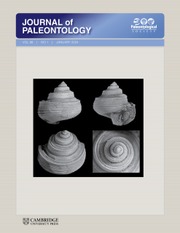I have had the pleasure of knowing Jingmai O'Connor for nearly 17 years. I met her when she was a young undergraduate student at Occidental College, and when she was in love with Mesozoic marine reptiles. Since then, Jingmai became my graduate student (co-supervised by Dave Bottjer at USC), and my dearest colleague, collaborator, and friend. I'm somewhat sorry that I steered away her passion for marine Mesozoic reptiles, but in the end it worked out well because Jingmai has become a leading authority in the rapidly advancing field of early bird evolution.
Jingmai has one of the most prolific careers you can possibly imagine for a young paleontologist: for someone with barely 10 years since obtaining her PhD, she has published about 100 papers, many of them in high profile journals (Nature, Science, Nature Communications, PNAS, and so on). She has a Google H-index of 31 and over 2300 citations. She went from being a post-doc to become a Senior Professor at the Institute of Vertebrate Paleontology and Paleoanthropology (China's premier research paleontological center) in just six years. In fact, when appointed, she became the youngest Senior Professor in the history of that institution!
Jingmai has studied avian fossils from around the world and knows better than anyone the tremendously rich diversity of stem birds from the celebrated Early Cretaceous Jehol Biota of China. Her many publications describing new species of Chinese birds (from Jehol and elsewhere) and placing them in a phylogenetic context have contributed enormously to our understanding of early avian disparity and diversification as well as the evolution of the avian body. But Jingmai's contributions go far beyond taxonomy and systematics. Taking full advantage of her international network and the treasure trove of Jehol birds—many of them complete with feathers and internal organs—she has made impressive contributions to our understanding of the paleobiology of early birds. She has delved into their physiology, development and life history, and ecology, and as a result of these discoveries, she has clarified important aspects of the evolution of the unique avian biology.
More recently, Jingmai has joined forces with an international team of researchers studying the spectacular discoveries of middle Cretaceous amber from Myanmar. Exquisitely preserved inclusions in Burmese amber are revealing a new tropical avifauna from the Mesozoic and providing key information about feather microstructure. These inclusions allow visualization of feather structures like never before. And once again, Jingmai is taking full advantage of this unprecedented opportunity.
Her studies on early avian evolution have already left a profound impact on the history of this active paleontological field. There is little doubt that her prolific work will be viewed as foundational for future advances aimed at deciphering the rich and complex evolutionary history of birds.
But it is her outgoing personality, enthusiasm, and bold honesty that have turned Jingmai into a vertebrate paleontology celebrity. She is the go-to person for collaborations on a broad range of topics related to the early history of birds, and she works easily with dozens of collaborators, younger and older, from all cultures. She is the life of the party at numerous meetings around the world, where she delivers energy-packed and engaging lectures She does this while mentoring and inspiring students of all nations. I don't know what the Society of Vertebrate Paleontology will do when Jingmai decides to stop DJ-ing at SVP's annual meetings!
I'm thrilled to be here today to celebrate Jingmai's phenomenal achievements. This weekend is the Natural History Museum's DinoFest, an event that brings in 14,000 visitors. But because Jingmai is someone very especial to me, and to all of us who have dedicated our lives to study the evolution of birds, I am here. She is clearly a one-in-a-lifetime type of person.
Finally, I want to thank those who supported my nomination of Jingmai O'Connor for this award: Michael Benton, from the University of Bristol; Dave Bottjer, from the University of Southern California; Mark Norell, from the American Museum of Natural History; Phil Currie and Corwin Sullivan, from the University of Alberta; and Zhou Zhonghe from the IVPP in Beijing. To all of them, and to all of you, many thanks!
September 22, 2019



